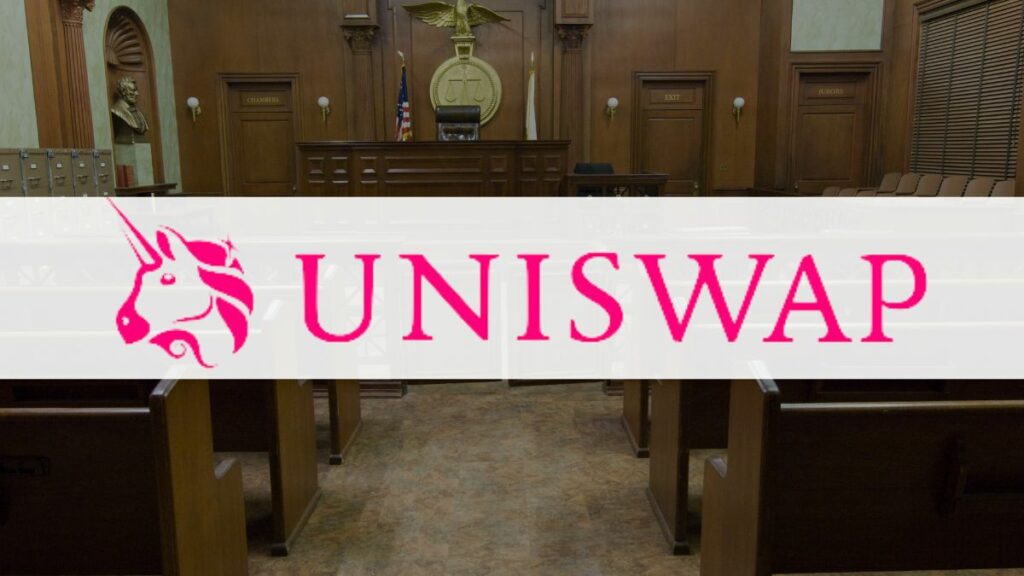The United States District Court for the Southern District of New York has delivered a verdict dismissing a class-action lawsuit that had been filed against Uniswap Labs, the team behind the Uniswap decentralized cryptocurrency exchange.
Judge overseeing SEC v. Coinbase just dismissed a class action against Uniswap.
Notice the language:
“Due to the Protocol’s decentralized nature… no identifiable defendant.”
“…the fact that the current state of cryptocurrency regulation leaves them without recourse.” pic.twitter.com/CMoXzmjiWh
— Mike Wawszczak (@mikewawszczak) August 30, 2023
The plaintiffs, a group of investors who claimed losses due to fraudulent tokens on the platform, sought restitution through legal channels. However, the presiding judge, Judge Katherine Polk Failla, who also happens to be the judge in charge of the SEC v. Coinbase case, ruled that their assertions lacked sufficient evidence, and the case was therefore declared untenable.
The lawsuit, initiated in April 2022, was brought by a group of six individuals who had purchased tokens on the Uniswap platform between December 2020 and March 2022.
These plaintiffs contended that Uniswap Labs was in control of liquidity pools on the protocol, including those created by the scammers responsible for their losses. Their primary argument rested on the assertion that Uniswap’s involvement with these liquidity pools made them liable for the fraudulent activities occurring therein.
Court Declares the Case Against Uniswap Labs as Untenable

Judge Failla’s ruling highlighted the decentralized nature of Uniswap, which complicated the identification of responsible parties. She pointed out that the lack of clarity in existing cryptocurrency regulations further hindered the plaintiffs’ case.
“The Court declines to stretch the federal securities laws to cover the conduct alleged and concludes that Plaintiffs’ concerns are better addressed to Congress than to this Court,” the judge maintained.
This ruling emphasized the evolving digital asset space and decentralized technologies, making it clear that the current legal framework didn’t substantiate the claims against Uniswap.
The judge’s analogy, likening Uniswap’s situation to holding a self-driving car developer responsible for a third party’s misuse of the technology, underscored the notion that creators of technology should not be held accountable for misuses perpetrated by unrelated parties.
This perspective aligns with the broader sentiment that decentralized platforms, in their current form, lie outside the domain of traditional regulatory frameworks.
Meanwhile, Marvin Ammori, the chief legal officer (CLO) of Uniswap Labs, stated after the dismissal that the court’s ruling pointed to a trend in legal viewpoints and that the “Uniswap protocol has primarily lawful use, and protocol developers aren’t liable when others misuse it.”
Another huge victory for the crypto world & software devs. SDNY court tossed out a class action against us, deciding that the “self-driving” Uniswap protocol has primarily *lawful* use & protocol devs aren’t liable when others misuse it. The trend in courts is obvious. pic.twitter.com/nrUyJlFhdB
— Marvin Ammori (@ammori) August 30, 2023
This ruling once again serves as a timely lesson for the crypto community, lawmakers, and financial regulators. It draws attention to the fact that Congress and financial regulators, particularly the SEC, have fallen short of establishing comprehensive rules to regulate the cryptocurrency market. The decision also demonstrates the court’s unwillingness to expand current securities regulations to include circumstances involving emerging technologies.












